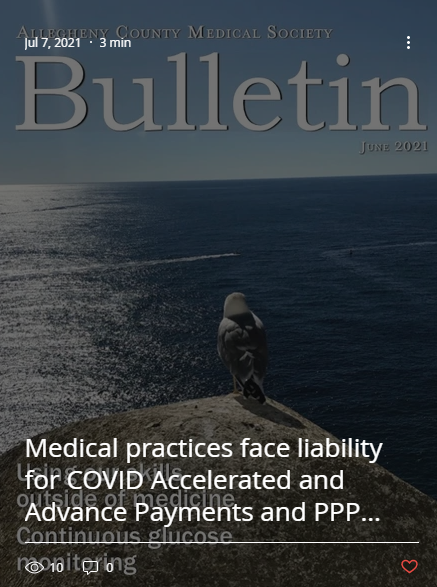Home
»
ACMS Bulletin
»
Medical practices face liability for COVID Accelerated and Advance Payments and PPP loan fraud enfor

This page is for members only. If you are interested in learning more, please review our membership page
.

